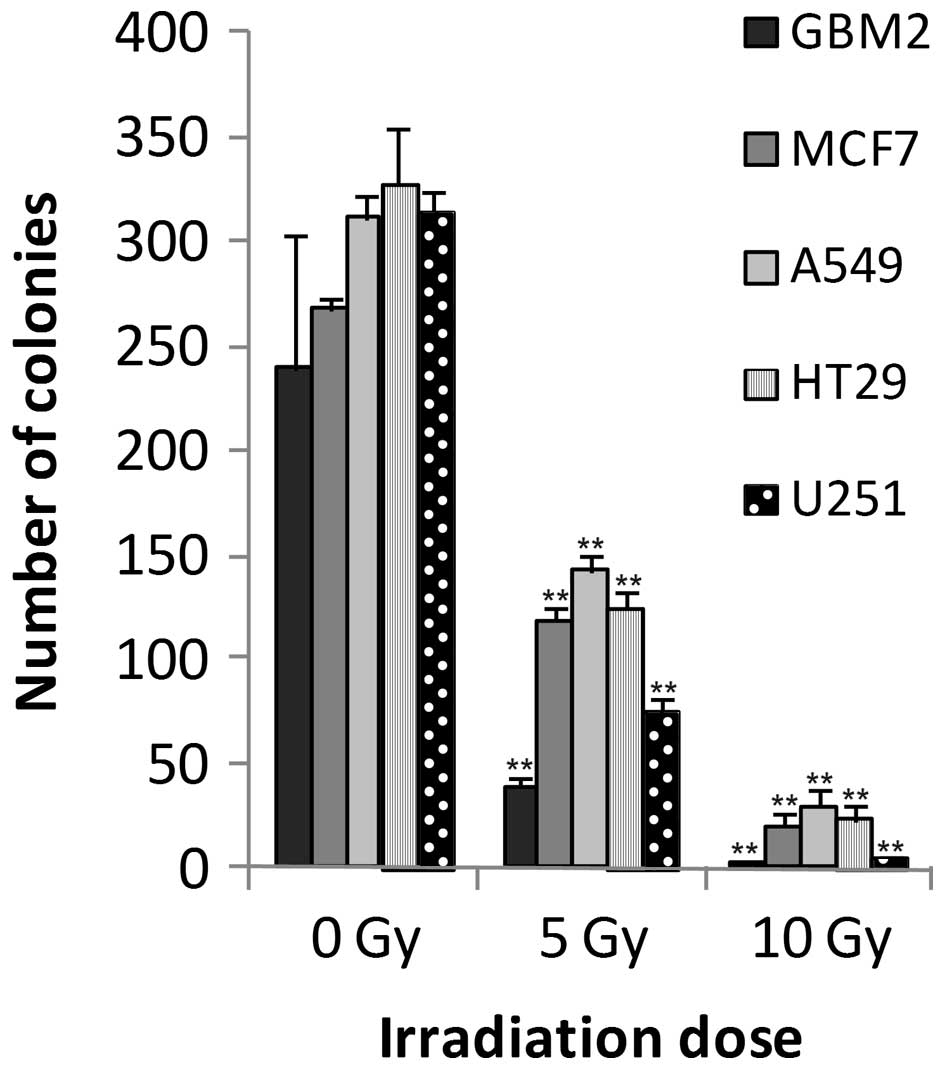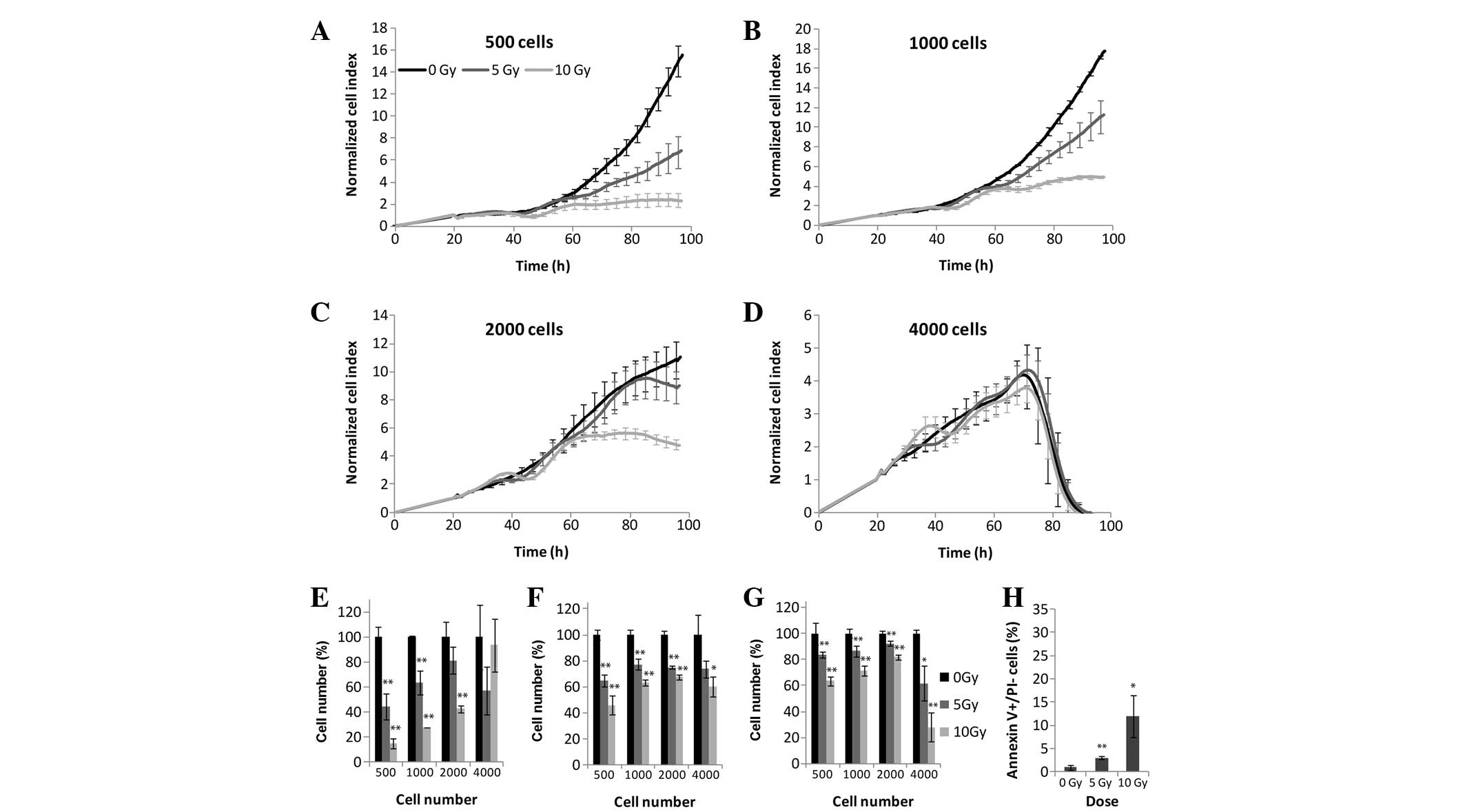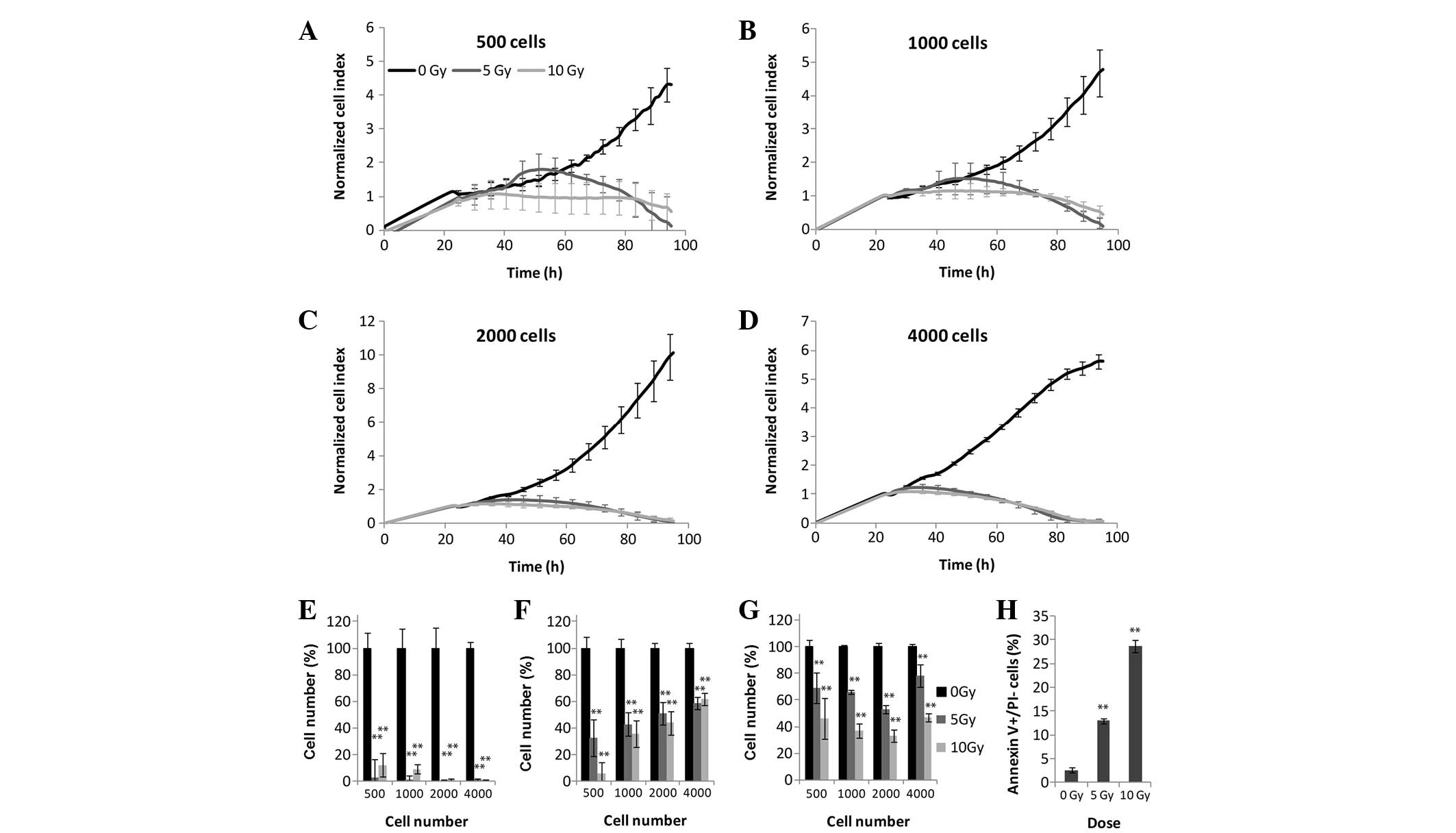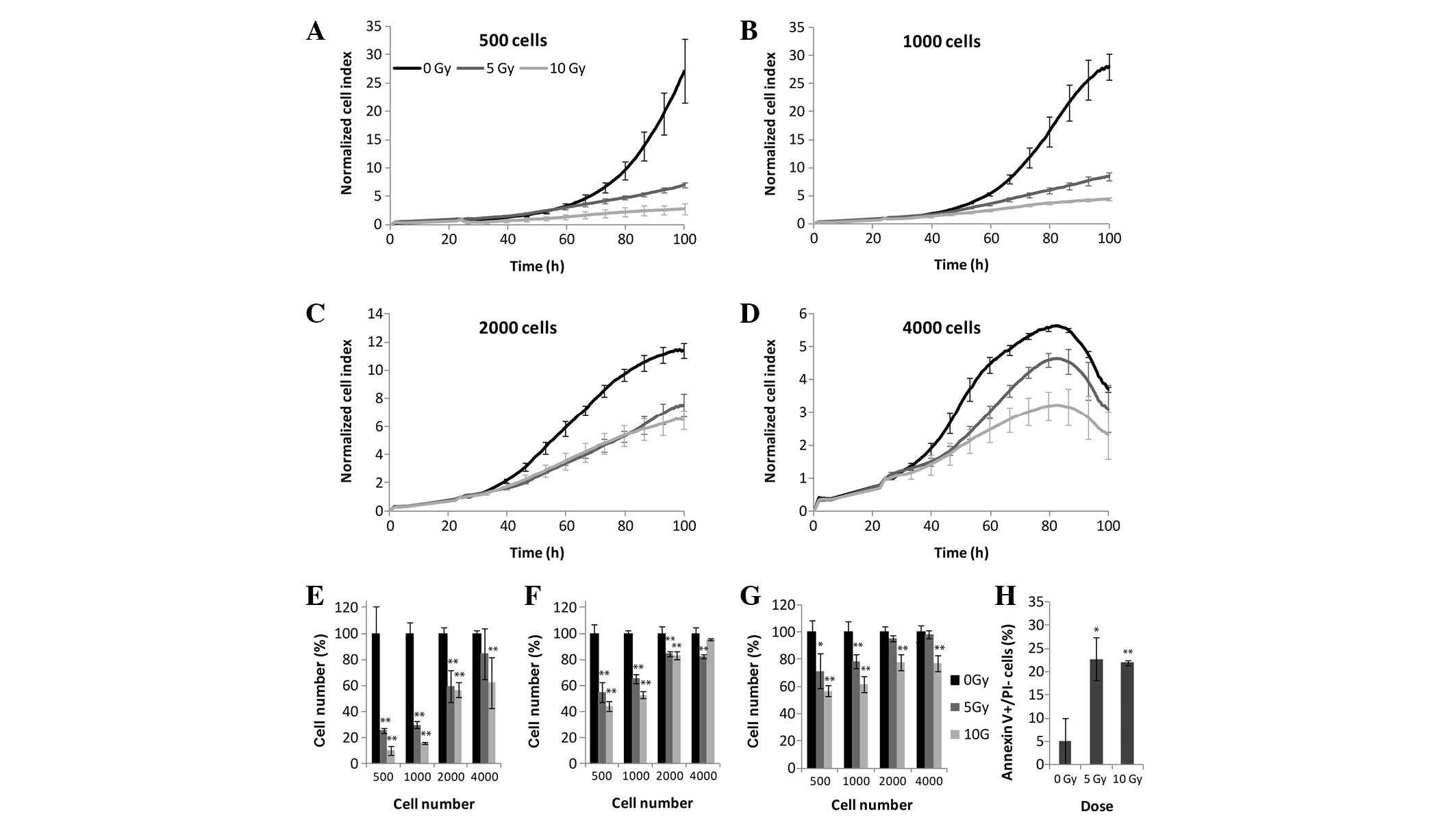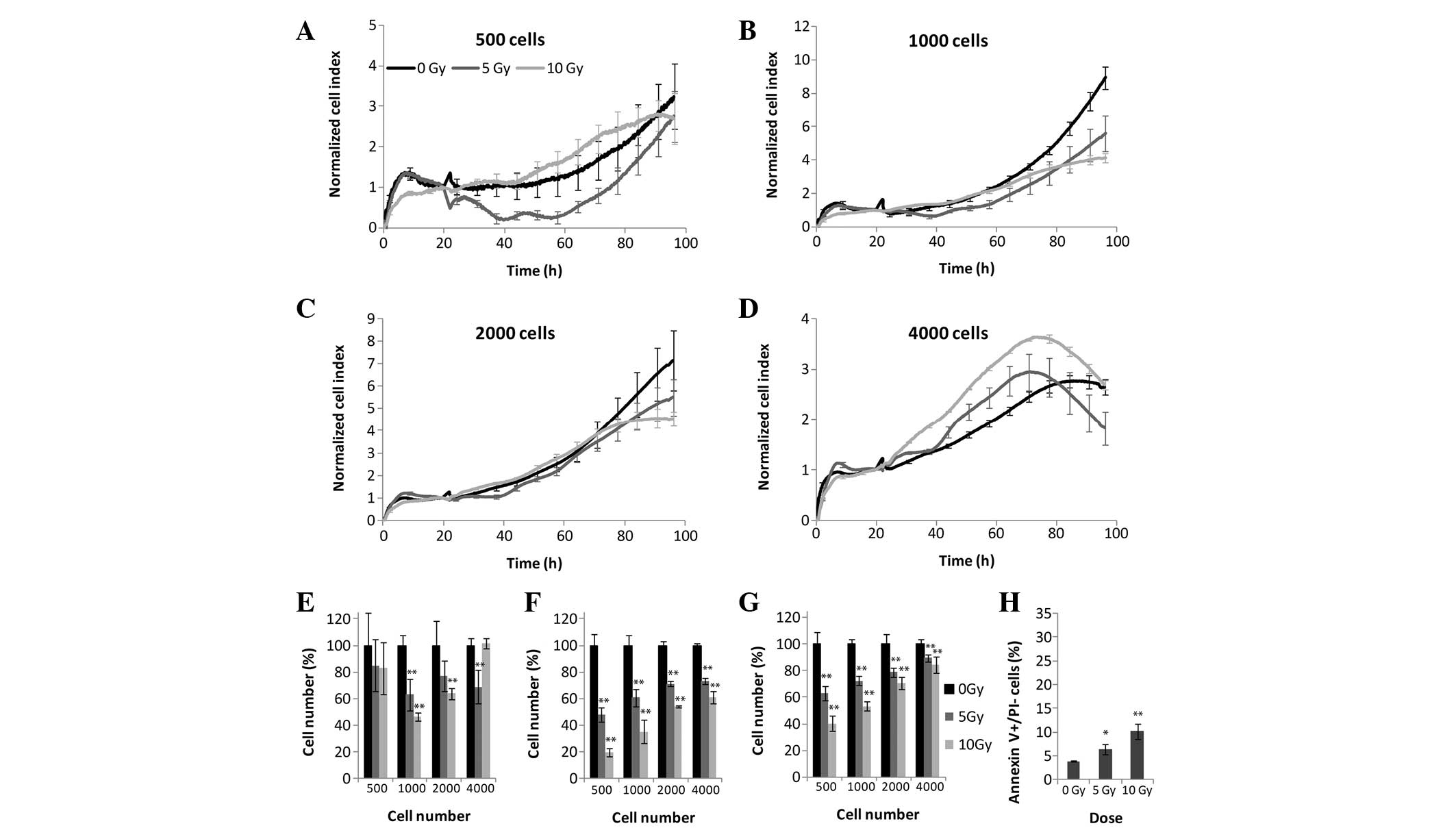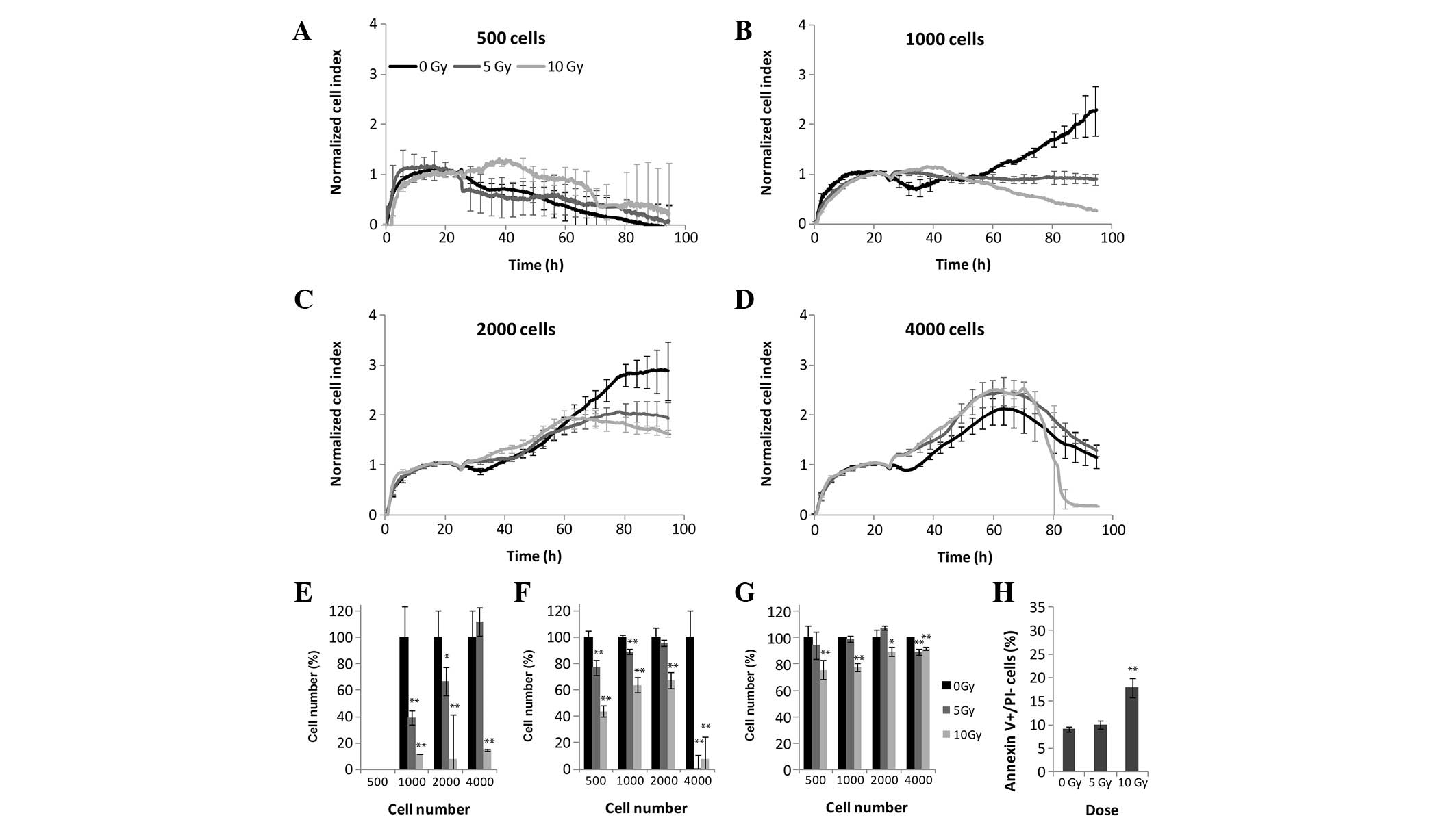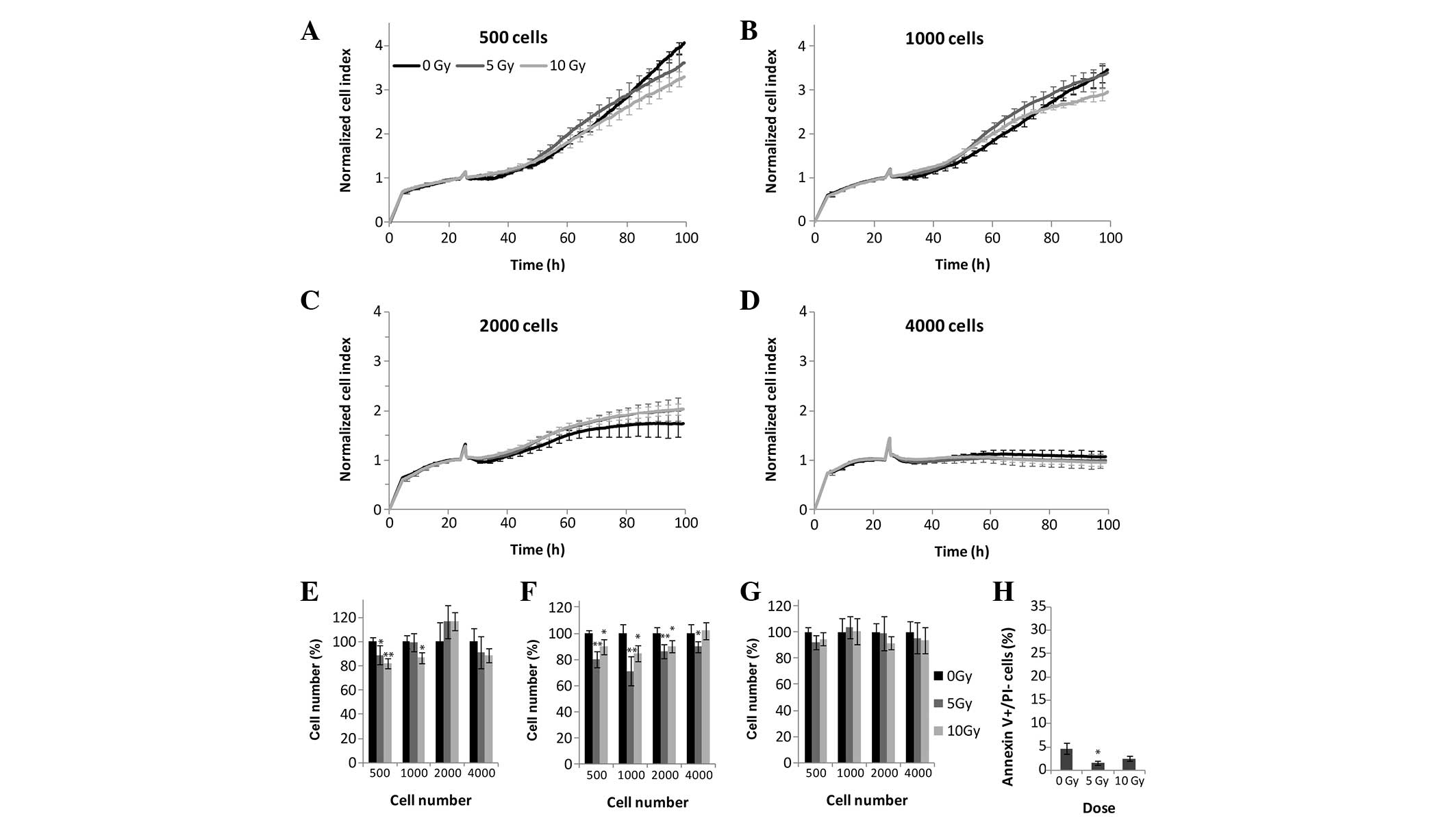|
1
|
Bittoni A, Faloppi L, Giampieri R and
Cascinu S: Selecting the best treatment for an individual patient.
Recent Results Cancer Res. 196:307–318. 2012. View Article : Google Scholar : PubMed/NCBI
|
|
2
|
Weiss JF and Landauer MR: History and
development of radiation-protective agents. Int J Radiat Biol.
85:539–573. 2009. View Article : Google Scholar : PubMed/NCBI
|
|
3
|
Fietkau R: Concurrent radiochemotherapy
for the treatment of solid tumors. Strahlenther Onkol. 188(Suppl
3): 263–271. 2012.In German. View Article : Google Scholar
|
|
4
|
Hendry JH: Radiation biology and radiation
protection. Ann ICRP. 41:64–71. 2012. View Article : Google Scholar : PubMed/NCBI
|
|
5
|
Smout MJ, Kotze AC, McCarthy JS and Loukas
A: A novel high throughput assay for anthelmintic drug screening
and resistance diagnosis by real-time monitoring of parasite
motility. PLoS Negl Trop Dis. 16(4): e8852010. View Article : Google Scholar
|
|
6
|
Buch K, Peters T, Nawroth T, Sänger M,
Schmidberger H and Langguth P: Determination of cell survival after
irradiation via clonogenic assay versus multiple MTT Assay – a
comparative study. Radiat Oncol. 7:12012. View Article : Google Scholar
|
|
7
|
Price P and McMillan TJ: Use of
tetrazolium assay in measuring the response of human tumor cells to
ionizing radiation. Cancer Res. 50:1392–1396. 1990.PubMed/NCBI
|
|
8
|
Brubel R, Boronkai A, Reglodi D, Racz B,
Nemeth J, Kiss P, Lubics A, Toth G, Horvath G, Varga T, Szogyi D,
et al: Changes in the expression of pituitary adenylate
cyclase-activating polypeptide in the human placenta during
pregnancy and its effects on the survival of JAR choriocarcinoma
cells. J Mol Neurosci. 42:450–458. 2010. View Article : Google Scholar : PubMed/NCBI
|
|
9
|
Caltová K and Cervinka M:
Antiproliferative effects of selected chemoterapeutics in human
ovarian cancer cell line A2780. Acta Medica (Hradec Kralove).
55:116–124. 2012.
|
|
10
|
Mishra J, Mittra B and Mittra A: Effect of
whole body gamma radiation on hepatic LDH activity, lactate,
pyruvate concentration and rate of oxygen consumption in Bufo
melanostictus. Indian J Exp Biol. 40:1310–1313. 2002.
|
|
11
|
Ozsvári B, Puskás LG, Nagy LI, Kanizsai I,
Gyuris M, Madácsi R, Fehér LZ, Gerö D and Szabó C: A
cell-microelectronic sensing technique for the screening of
cytoprotective compounds. Int J Mol Med. 25:525–530.
2010.PubMed/NCBI
|
|
12
|
Kiss L, Walter FR, Bocsik A, Veszelka S,
Ozsvári B, Puskás LG, Szabó-Révész P and Deli MA: Kinetic analysis
of the toxicity of pharmaceutical excipients Cremophor EL and RH40
on endothelial and epithelial cells. J Pharm Sci. 102:1173–1181.
2013. View Article : Google Scholar : PubMed/NCBI
|
|
13
|
Kürti L, Veszelka S, Bocsik A, Dung NT,
Ozsvári B, Puskás LG, Kittel A, Szabó-Révész P and Deli MA: The
effect of sucrose esters on a culture model of the nasal barrier.
Toxicol In Vitro. 26:445–454. 2012. View Article : Google Scholar : PubMed/NCBI
|
|
14
|
Kürti L, Veszelka S, Bocsik A, Ozsvári B,
Puskás LG, Kittel A, Szabó-Révész P and Deli MA: Retinoic acid and
hydrocortisone strengthen the barrier function of human RPMI 2650
cells, a model for nasal epithelial permeability. Cytotechnology.
65:395–406. 2013. View Article : Google Scholar :
|
|
15
|
Atienza JM, Yu N, Kirstein SL, Xi B, Wang
X, Xu X and Abassi YA: Dynamic and label-free cell-based assays
using the real-time cell electronic sensing system. Assay Drug Dev
Technol. 4:597–607. 2006. View Article : Google Scholar : PubMed/NCBI
|
|
16
|
Urcan E, Haertel U, Styllou M, Hickel R,
Scherthan H and Reichl FX: Real-time xCELLigence impedance analysis
of the cytotoxicity of dental composite components on human
gingival fibroblasts. Dent Mater. 26:51–58. 2010. View Article : Google Scholar
|
|
17
|
Ke N, Wang X, Xu X and Abassi YA: The
xCELLigence system for real-time and label-free monitoring of cell
viability. Methods Mol Biol. 740:33–43. 2011. View Article : Google Scholar : PubMed/NCBI
|
|
18
|
Diemert S, Dolga AM, Tobaben S, Grohm J,
Pfeifer S, Oexler E and Culmsee C: Impedance measurement for
real-time detection of neuronal cell death. J Neurosci Methods.
203:69–77. 2012. View Article : Google Scholar
|
|
19
|
Erskine CL, Henle AM and Knutson KL:
Determining optimal cytotoxic activity of human Her2neu specific
CD8 T cells by comparing the Cr51 release assay to the xCELLigence
system. J Vis Exp. 66:e36832012.PubMed/NCBI
|
|
20
|
Shareef MM, Brown B, Shajahan S,
Sathishkumar S, Arnold SM, Mohiuddin M, Ahmed MM and Spring PM:
Lack of P-glycoprotein expression by low-dose fractionated
radiation results from loss of nuclear factor-kappaB and NF-Y
activation in oral carcinoma cells. Mol Canc Res. 6:89–98. 2008.
View Article : Google Scholar
|
|
21
|
Schwarz SB, Schaffer PM, Kulka U,
Ertl-Wagner B, Hell R and Schaffer M: The effect of radio-adaptive
doses on HT-29 and GM637 cells. Radiat Oncol. 3:122008. View Article : Google Scholar
|
|
22
|
Feofanova N, Geraldo JM and de Andrade LM:
Radiation oncology in vitro: Trends to improve radiotherapy through
molecular targets. Biomed Res Int. 2014:4616872014. View Article : Google Scholar : PubMed/NCBI
|
|
23
|
Hendry JH and West CM: Apoptosis and
mitotic cell death: Their relative contributions to normal-tissue
and tumour radiation response. Int J Radiat Biol. 71:709–719. 1997.
View Article : Google Scholar : PubMed/NCBI
|
|
24
|
Togo S, Polanska UM, Horimoto Y and Orimo
A: Carcinoma-associated fibroblasts are a promising therapeutic
target. Cancers (Basel). 5:149–169. 2013. View Article : Google Scholar
|
|
25
|
Grey AM, Schor AM, Rushton G, Ellis I and
Schor SL: Purification of the migration stimulating factor produced
by fetal and breast cancer patient fibroblasts. Proc Natl Acad Sci
USA. 86:2438–2442. 1989. View Article : Google Scholar : PubMed/NCBI
|
|
26
|
Camps JL, Chang SM, Hsu TC, Freeman MR,
Hong SJ, Zhau HE, von Eschenbach AC and Chung LW:
Fibroblast-mediated acceleration of human epithelial tumor growth
in vivo. Proc Natl Acad Sci USA. 87:75–79. 1990. View Article : Google Scholar : PubMed/NCBI
|
|
27
|
Albert DM, Walton DS, Weichselbaum RR,
Cassady JR, Little JB, Leombruno D, Trantravahi R and Puliafito CA:
Fibroblast radiosensitivity and intraocular fibrovascular
proliferation following radiotherapy for bilateral retinoblastoma.
Br J Ophthalmol. 70:336–342. 1986. View Article : Google Scholar : PubMed/NCBI
|
|
28
|
Ohuchida K, Mizumoto K, Murakami M, Qian
LW, Sato N, Nagai E, Matsumoto K, Nakamura T and Tanaka M:
Radiation to stromal fibroblasts increases invasiveness of
pancreatic cancer cells through tumor-stromal interactions. Cancer
Res. 64:3215–3222. 2004. View Article : Google Scholar : PubMed/NCBI
|















